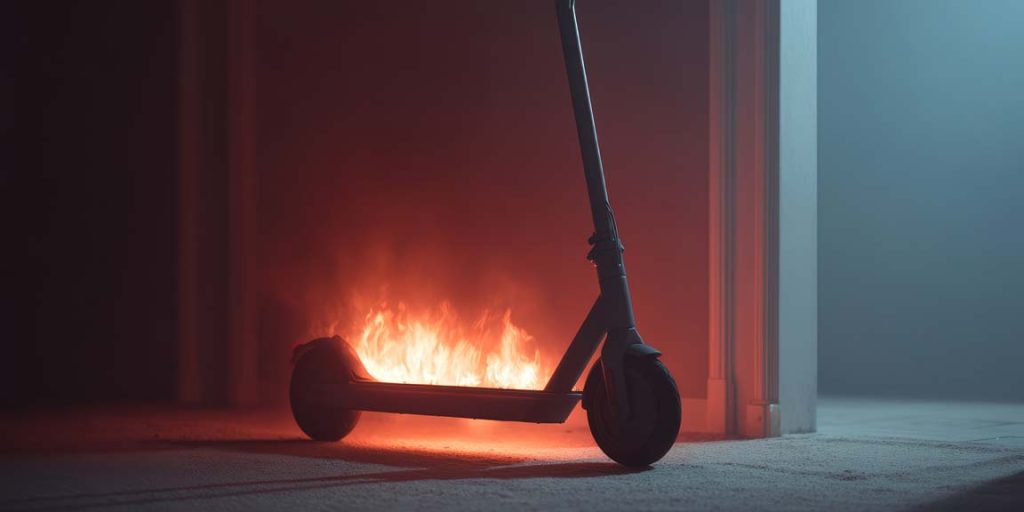What Are Lithium-Ion Batteries and Why Should You Care About Them?
You probably use lithium-ion batteries every day—they’re in your phone, laptop, electric bike, and even e-scooters. These batteries are popular because they hold a lot of power without being heavy, which makes your gadgets and electric vehicles work better.
But while lithium-ion batteries are great, they can sometimes be a fire risk if they aren’t used or stored properly. It’s important to know how to keep yourself and your home safe, especially when it comes to insurance.
Why Can Lithium-Ion Batteries Cause Fires?
Lithium-ion batteries contain materials that can catch fire if the battery overheats. This can happen if:
- You overcharge your device (charging it too long or with the wrong charger).
- The battery gets damaged (if you drop your phone or e-bike).
- The battery has a manufacturing fault.
- Batteries are kept in hot or poorly ventilated places.
If a battery overheats, it can cause a “thermal runaway” — that’s when the battery gets hotter and hotter until it catches fire or explodes. These fires can be dangerous because the batteries also release harmful gases.
Real-Life Examples of Lithium-Ion Battery Fires
You might have heard about some incidents like:
- E-scooter fires: Sometimes e-scooters catch fire while charging, especially if the battery is damaged or the wrong charger is used.
- Samsung Galaxy Note 7 recall: This phone was recalled worldwide because its battery design caused fires.
- Boeing 787 Dreamliner: Some planes had to be grounded after their lithium batteries overheated and caught fire.
These events remind us why it’s important to handle lithium batteries carefully.

How Can You Stay Safe?
Here are some easy tips:
- Use the right charger for your devices.
- Avoid charging devices overnight or unattended.
- Don’t leave batteries or devices in hot places like direct sunlight or a hot car.
- If your device or battery gets damaged, stop using it and get it checked or replaced.
- Buy batteries and devices from trusted brands and suppliers
What About Fire Safety at Home?
If you have devices with lithium-ion batteries, be aware that fires involving these batteries can be tricky to put out. Firefighters use special methods to safely handle these fires. At home, make sure you have working smoke alarms and a fire extinguisher suitable for electrical fires.
If you have larger battery setups (like home power banks or electric vehicle chargers), it’s a good idea to have a professional check the installation and fire safety.
How to Store and Dispose of Lithium-Ion Batteries Properly
- Store batteries in cool, dry places away from flammable materials.
- If you’re not using a battery for a long time, keep it charged to about half (30-50%)—not full or empty.
- Don’t throw old batteries in the bin. Take them to recycling points or return them to shops that offer battery recycling.
Why Does This Matter for Your Insurance?
If lithium-ion batteries cause a fire or damage, it could affect your home or business insurance claims. Knowing the risks and taking safety steps helps protect your home and belongings—and keeps your insurance valid and effective.
Need Help Understanding Risks?
At A-One, we want to help you stay safe and protected. For more detailed advice on lithium battery safety and risk management, you can check out resources like RiskSTOP who specialise in fire safety and risk assessments.
